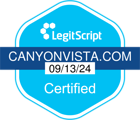Recovery from an addiction to drugs or alcohol is a challenging process that you need to work at every day. Sometimes the challenges will feel insurmountable. One of the most valuable resources you can have to help you face these challenges is another person who understands what you’re going through and is willing to mentor and support you.
What Is a Mentor in Addiction Recovery?
A recovery mentor is a person who provides guidance and emotional support as you go through addiction recovery. As your trusted advisor and counselor, they will help you set goals and be a strong support source when cravings bring thoughts of relapse. Your mentor will help you through stressful situations and challenging times. They will help you navigate employment services, health services, the criminal justice system, and help you get any treatment you need. Recovery mentors understand addiction and recovery because they have experienced it themselves.
An addiction recovery mentor is not the same as a 12-Step sponsor. The job of a 12-Step sponsor is to provide emotional support and help their sponsee move through the 12-Step program.
Recovery Mentors & Young Adults with Substance Use Disorders
Having a recovery mentor is especially helpful for younger adults with substance use disorders. A positive relationship develops between the mentor, who is a more knowledgeable and experienced person, and the mentee. It facilitates an open conversation regarding addiction and recovery and helps young adults learn the life skills they may have never developed because of their addiction.
The Benefits of a Mentorship in Recovery
There are numerous benefits to having a mentor in recovery.
- One-on-One Guidance: Completing an alcohol or drug treatment program and moving to the next step of the recovery process can be stressful and overwhelming. It takes time to put everything you learned in treatment into practice. Having a recovery mentor provides you with the one-on-one guidance you need to move forward with support and confidence. It makes it easier to avoid slipping back into old behaviors and thought patterns that lead to a potential relapse. Even though everyone has their own story of addiction, your mentor has been where you are now. They have been in the same situation and experienced the same feelings and emotions. They are there to help you overcome any challenges you encounter and move forward in your sobriety.
- Mentorship is a Relationship of Trust: When you go through the process of addiction recovery, you often feel alone. Relationships may have been damaged and trust destroyed during active addiction. In recovery, relationships need to be repaired and trust rebuilt. As you begin this process, you may feel like there is not anyone you can count on. A recovery mentor is someone you can rely on and trust. By giving you guidance and advice, your mentor can help you repair your damaged relationships.
- An Accountability Partner: Throughout the process of recovery, temptations come up. You have to choose sobriety each day. Having a mentor throughout recovery means you do not have to deal with temptations alone. Checking in with your mentor at specific times throughout the week is a great way to stay actively engaged in your recovery process. When you talk to your mentor, they will help you work through your temptation and encourage you to make the right choices. Your mentor helps you stay accountable for your actions and safeguard your sobriety.
Many people who struggle with substance use disorders feel disconnected from other people. They find it hard to find others they can relate to as they go through recovery. During this time, having a recovery mentor means having a meaningful connection. Your mentor is an integral part of your life as you go through the process of recovery.
How Do You Find a Recovery Mentor?
Mentors are often found through addiction treatment programs. Alumni of those programs may be available to mentor those who are new to recovery. The alumni program at Canyon Vista Recovery Center offers phone and email follow-ups, annual social events, a Facebook community, and a phone app that connects alumni for encouragement and event updates.
Community support groups, including recovery groups like AA or NA, can be a wonderful source for mentorship. All you have to do is ask. If you know someone who has been in recovery for a long time, who is healthy in their recovery, and who enjoys giving back to the recovery community, ask that person if they’d be willing to be your mentor as you navigate life after treatment.
Do You Need Help?
If you or a loved one struggles with an addiction to drugs or alcohol, now is the time to get help. You are not alone. At Canyon Vista Recovery Center, located in Mesa, Arizona, our caring professionals will help heal your mind, body, and spirit using a combination of clinical, psychiatric, medical, and holistic approaches. Call us today, and take the first step on the road to recovery.











